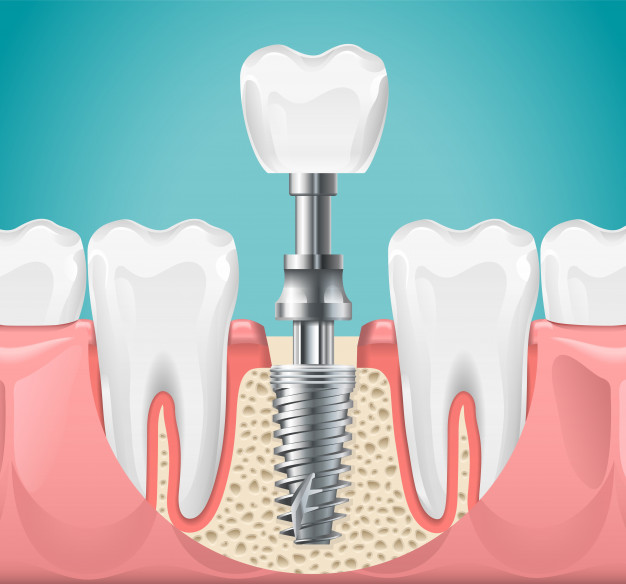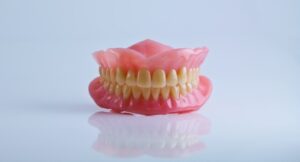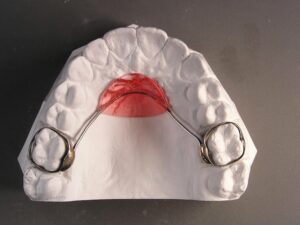Overview | Candidates | Pros | Cons | Treatment | Mini Implants Cost | Conclusion
People lose teeth naturally and, in some cases, accidentally and look for the best possible method of restoring missing teeth. A missing tooth affects the functionality as well as aesthetics of the dental system, so it is natural for anyone to look for suitable missing tooth restoration treatment. Thanks to advancements made in dental appliances technology, you have removable complete or partial dentures, fixed bridges, and the most successful dental implant treatment option to get a functionally and aesthetically perfect dental system.
Dentures are a good missing-tooth replacement option in terms of cost, but discomfort, durability, and apprehension of wobbliness are big challenges. Bridges are a more stable and durable option, but dependence on existing teeth makes them unsuitable for many cases, and most importantly the damage to natural teeth is irreversible.
Dental implants are highly effective in terms of durability, stability, and functionality, but it comes at some additional cost, care, and the trauma of surgery. If you are looking for a less invasive and less painful tooth restoration procedure without sacrificing the advantages of traditional dental implants, then you can opt for mini dental implants. However, it all depends on the suitability of the treatment which in turn depends on the location of the missing tooth or teeth, dental health, and most importantly status of jawbones and gums.
Mini dental implants technique doesn’t require bone grafting or multiple surgeries, but it is usually recommended for smaller teeth like premolar and incisors. A mini dental implant is all about less pain, less discomfort, less cost.
What is a Mini implant?
Mini dental implants, as the name suggests, are designed to make tooth replacement treatment more comfortable as these are smaller and work better even if available space is limited. Your dentist will examine your dental system, if there is not enough space and less bone density he will recommend mini dental implants to get results as effective as the traditional dental implants.
Just like a regular dental implant, a mini implant is also a surgical fixture that is inserted into the jawbone to create a stable platform for an artificial crown. Once the “artificial tooth root” gets fused properly, which usually takes a few months, a natural-looking crown or bridge is placed to give you a fully functional and aesthetically pleasing tooth. Made of titanium, it fuses with the jawbone effortlessly and gives you a stable long-lasting tooth. With a success rate of over 98%, it is one of the most effective tooth restorations procedures.
Unlike regular dental implants, the screw in a mini implant is just 2.5 mm diameter, as against 4-5 mm of a regular dental implant. This makes it highly effective if the space in the jawbone is limited. The procedure is less invasive and less time-consuming, so the recovery period is also less as compared to regular dental implants.
Candidates for Mini Dental Implants
Mini dental implants are a great alternative to traditional implants as it offers your several advantages at less cost and less discomfort. However, the success of the treatment depends on the suitability of the treatment. You are an ideal candidate, if:
- You have missing tooth or teeth but don’t have enough space on the jawbone for bigger screws of traditional dental implants.
- The jawbone density is low for the regular dental implant procedure.
- You have issues with the fitting of the denture as the shape of the jaw changes over time with the long-term use of dentures.
- You want a less invasive procedure.
- You want quicker missing tooth restoration with comfort.
However, you should inform your expert if you have gum disease or other health issues. If you have health conditions like diabetes or any heart ailments, you should better seek your doctor’s advice before opting for a mini dental implant procedure.
Pros
Living with missing teeth isn’t easy, so the best possible way is to restore missing teeth at the earliest using the most effective procedure. Here are some of the benefits of mini dental implants offer to help you choose the best:
- Unlike a traditional dental implant, which requires bone grafting, mini implants do not require any grafting.
- In some cases, traditional dental implants might require flap surgery. But with smaller mini implants you do not need complicated flap surgery
- The mini implant procedure is less invasive, so recovery takes just a few days, unlike several months of traditional implants.
- A lesser recovery period ensures minimal chances of implant failure, which normally happens due to a long period of wound exposure to pathogens.
- Procedural simplicity makes it relatively comfortable
- There will be minimal disturbance to bone tissues and gums, so you won’t need intensive pain management medications.
- The procedure could be completed in a single session, thus it saves your time and energy. Your teeth will be functionally ready in just a few hours to eat normally.
- Unlike other implant options, it ensures no facial collapse as the stable tooth root prevents facial collapse.
- Although the procedure is new, it has a very high success rate
- Simple procedures, smaller sizes, and fewer visits make mini dental implant procedures less expensive. It costs almost half of the traditional implants.
- Mini dental implant missing-tooth restoration improves facial aesthetics significantly.
Cons
The smaller size of the implant gives you speedy tooth restoration, but it is possible only when there is no excessive bone loss.
- The procedure is less invasive, but it doesn’t mean it will be incision-free.
- Although this treatment is effective with less bone density, you still need some bones to offer support to teeth.
- It is not a good option for you if you have a teeth-grinding issue.
- Durability is good but less than traditional dental implants.
How Does Mini Dental Implant Treatment Work?
A mini dental implant, although new in implant space, is one of the most preferred procedures, and there are several valid reasons for that. You are aware of the advantages, so it is time to understand how it works and the procedure of inserting implant components.
In both, traditional as well as mini implants procedure titanium post, called screw, is first inserted in jawbones. Once the screw fuses properly, your dentist will attach a mini dental implant via a socket and ball joints.
Unlike traditional implants, in which abutment is secured at the gum line on the metal post, the mini implant has one ball and socket structure.
It all begins with taking detailed X-rays to determine the precise location for inserting a mini implant. Your dentist will make a small hole in the gum tissue using a pilot drill and then insert a mini implant and tighten it using specialized tools.
It will protrude above the gum line, initially, but your dentist will modify it before fitting the tooth on titanium post using O-rings. The whole procedure could be performed in a single visit, so it is highly recommended as it is quick and less painful.
Aftercare is very important because “artificial tooth root” takes time to fuse with the jawbone properly. So, you have to avoid eating hard and sticky food and maintain proper oral hygiene to prevent infection. Unlike traditional implants, you will be able to regain full functionality in just a few days.
How Much Do Mini Implants Cost?
If decay, damage, or an accident has impacted your one or more natural tooth, a mini implant can give you a fully functional and aesthetically pleasing tooth at less cost. The procedural complexity of traditional dental implants makes it costly, whereas mini implants, with all the benefits of traditional implants, come at almost half of the cost.
The cost depends on the expertise and location of your dentist, so the cost of a mini implant is less because the procedure could be performed in a single appointment. The procedure is less invasive as advanced micro-surgical tools are used to make a small hole, so you will have good-looking teeth ready to resume normal eating.
The cost of single mini dental implants could vary between $500 to $1,000, depending on procedural complexity, and of course, the location of your dental clinic. It is far less than the $3000 to $4500 charged for single traditional dental implants. Unfortunately, dental insurance companies consider dental implants as an elective procedure, so you should better discuss coverage of dental implant costs before you begin the treatment. Despite the success rate of above 98% and increasing popularity, insurance companies are not yet ready to provide easy coverage of the implant treatment cost.
Conclusion
A smile is invaluable, so one should do anything possible to smile with confidence. A missing tooth could be discouraging, especially if you are at a young age. Fortunately, you have a highly effective and affordable solution in the form of a mini dental implant. You will have natural-looking fully functional teeth to smile freely, but you have to maintain oral hygiene to keep it in perfect shape to have an enduring smile. Traditional dental implants are good but it is time taking and painful, and most importantly an expensive solution to restore a missing tooth. Get in touch with your dentist to check suitability and know more about the mini dental implant. Ultimately, it is all about a smile, so why waste time.
Sources:
- Griffitts, Trevor McClain, Chad Patrick Collins, and Patrick Charles Collins (2005). “Mini dental implants: an adjunct for retention, stability, and comfort for the edentulous patient.”
https://www.sciencedirect.com/science/article/pii/S1079210405005524 - Siddiqui, Azfar A., Sosovicka Mark, and Goetz Mark (2006). “Use of mini implants for replacement and immediate loading of 2 single-tooth restorations: a clinical case report.”
https://meridian.allenpress.com/joi/article-abstract/32/2/82/2046 - Vigolo, Paolo, and Andrea Givani (2005). “Clinical evaluation of single-tooth mini-implant restorations: a five-year retrospective study.”
https://www.sciencedirect.com/science/article/pii/S0022391300655725 - Morton, Dean, Robert Jaffin, and Hans-Peter Weber (2004). “Immediate restoration and loading of dental implants: clinical considerations and protocols.”
https://web.a.ebscohost.com/abstract?



